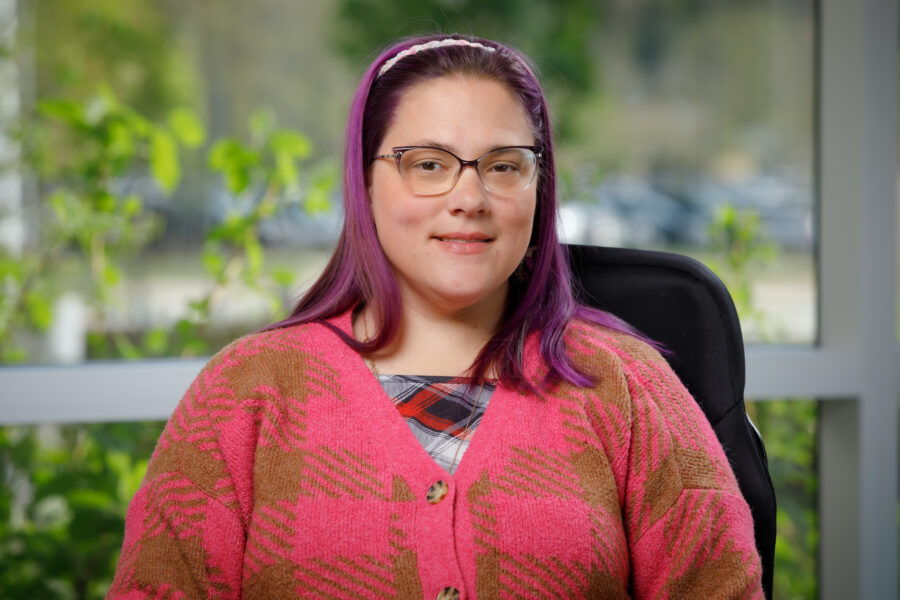A group of individuals in the disability community now is better equipped to advocate for themselves and their community, following a training session held at the Munroe-Meyer Institute this summer.
The three-day course Self-Advocacy Leadership Training (SALT)was led at MMI by Melanie Davis, an advocate mentor with MMI’s University Center for Excellence in Developmental Disabilities.
Self-Advocacy Leadership Training, or SALT, is designed to teach leadership skills to individuals with disabilities so they can learn strategies to advocate for themselves and others, as well as effect larger systems change.
SALT was developed by the University of Miami’s University Centers for Excellence in Developmental Disabilities (UCEDD). Davis was trained in Miami to be able to host the sessions in Nebraska.
“My ultimate goal is that they learn how to advocate in a way that works for them,” Davis said. “I think that’s changing lives.”
The session was open to individuals 18 and older with any disability.
The first day focused on how to self-advocate and how that differs by person. The second day looked at advocating in the community, and the final day addressed tackling larger, systemic change.
“It all connects,” Davis said. “Once you’ve learned to advocate for yourself, you learn how to advocate in the community, and then you can go onto advocate for others and make larger systems change.”
Topics covered included disability history, communication, problem-solving and legislative advocacy. Davis mixed in games and team-building exercises, too.
Some of the training participants may want to serve on boards or lead advocacy training sessions, Davis said. Others may be seeking the skills and confidence to speak up when they’d like to go swimming on Thursdays or want to have a package delivered right to their door.
Davis, who sits on several boards and is an advocate in the larger community, said she still finds herself advocating for what she needs regularly.
That’s why the training – and her position at MMI – is more to her than just a job, she said.
“This stuff didn’t exist for me. I had to learn on my own, and I don’t want people with disabilities to go through the same thing. I want to empower them with the knowledge that I wish I would have had.”
The sessions led by Davis give individuals the ability to more effectively provide input into policy decisions, said Mark Shriver, PhD, director of UCEDD at MMI.
“Providing resources to empower individuals with disabilities to be effective advocates for themselves and others is essential to ensuring that decisions made by clinicians, policymakers, legislators and others best meet the needs of individuals with disabilities,” Dr. Shriver said.
Davis plans to stay connected with the seven individuals who completed her first three-day SALT program.
She hopes to host another session in the fall. Those interested in attending, or who want for more information, can email Davis.
